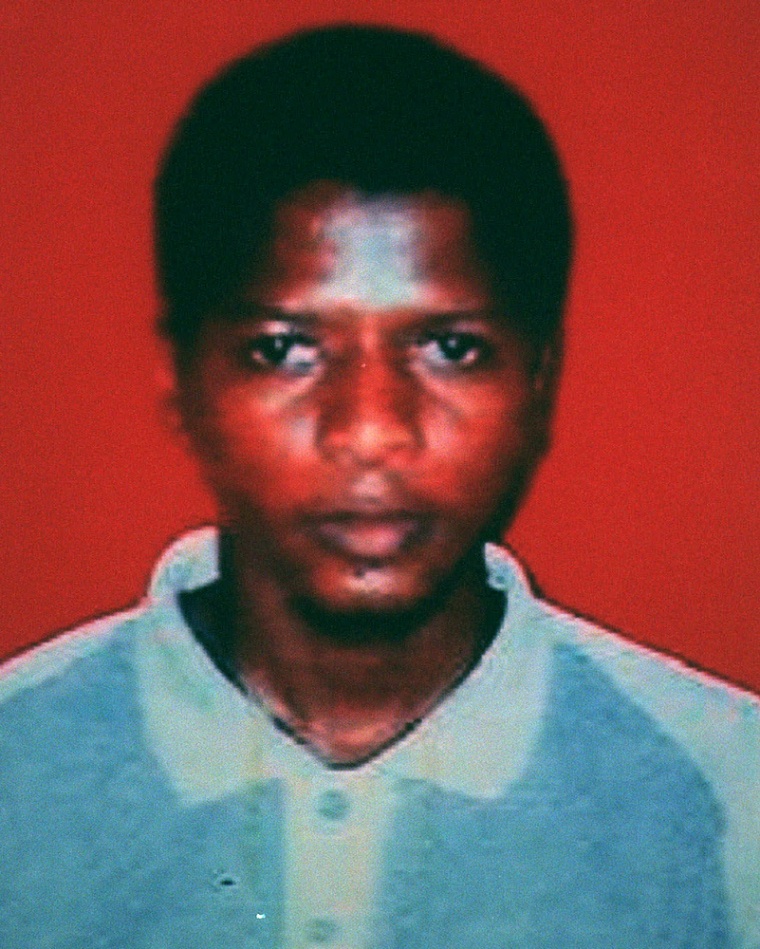A Guantanamo Bay detainee indicted in the bombing of the U.S. embassy in Tanzania says he unwittingly delivered the explosives used by others for the deadly attack, according to a Pentagon transcript of his hearing.
Ahmed Khalfan Ghailani said he did not know about the assault beforehand and was sorry for the role he played, according to the transcript of his hearing at the military base in Cuba.
“It was without my knowledge what they were doing, but I helped them,” he said. “So I apologize to the United States government for what I did. And I’m sorry for what happened to those families who lost, who lost their friends and their beloved ones.”
More than 200 people were killed in the simultaneous attacks in August 1998 on the U.S. embassies in Kenya and Tanzania. Eleven people were killed and as many as 85 wounded by the explosion in the parking lot of the embassy in Tanzania; nearly two-thirds of the building was destroyed.
Ghailani, a Tanzanian, is suspected of buying the Nissan truck used to deliver the bomb, supplying the TNT and detonators, and later running a document forgery office for al-Qaida in Afghanistan. He was arrested after a gunbattle in Gujrat in eastern Pakistan in July 2004.
Ghailani, speaking through a military representative, said he was first told the TNT he carried was soap for washing horses, then later — after he delivered it — was told it was explosives “for mining for diamonds in Somalia” and also for a Somali training camp.
During the hearing, Ghailani denied buying the truck but said he was there when it was purchased. He said he delivered the TNT to “Fahad Mohammed.” Fahid Mohammed Ally Msalam, of Mombasa, Kenya, is one of five suspects added to an indictment in December 1998 in connection with the embassy bombings. He has never been reported captured.
At times speaking in English, Ghailani said he went to an al-Qaida training camp in Afghanistan after the bombing, because he wanted military training for self-defense. He said he was not there to train to be an enemy combatant to attack the United States.
Ghailani is one of 14 high-profile detainees that were moved to Guantanamo in September from a secret CIA prison network. Secret hearings for five of them have been conducted so far to determine whether they should be declared “enemy combatants” who can be held indefinitely and prosecuted by military tribunals.
If they are declared enemy combatants, they could then be charged and tried under the new military commissions law signed by President Bush in October.
Also on Friday, a federal judge said she would not delay a military terrorism trial against another Guantanamo detainee, David Hicks of Australia.
Lawyers for Hicks asked that his military commission be suspended until the Supreme Court decides whether the Guantanamo detainees have the right to challenge their detention in U.S. courts. An appeals court ruled last month that they do not.
Hicks was captured in Afghanistan and faces charges of providing material support for terrorism. He allegedly fought with the Taliban against U.S.-led forces. He is scheduled to appear before a military commission Monday.
In the law that set up the commissions, Congress stripped federal courts of jurisdiction to get involved in cases involving detainees. The Supreme Court has not said whether it will take up the question. U.S. District Judge Colleen Kollar-Kotelly said she has no jurisdiction in Hick’s case.
